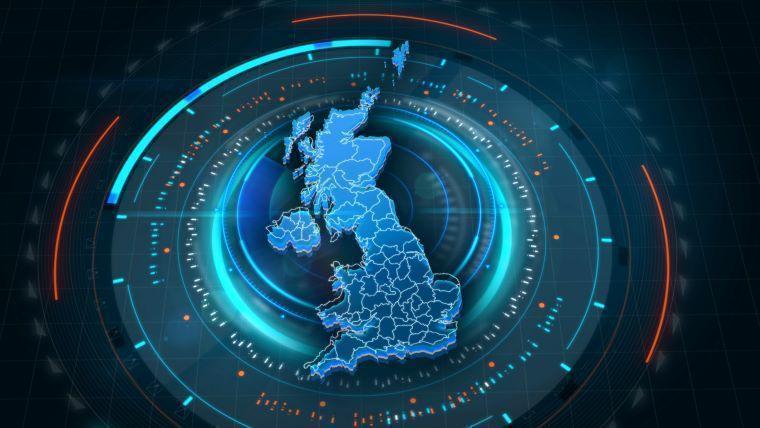The UK’s Payment Landscape: How Has It Changed Over the Past Decade?

The United Kingdom’s payment ecosystem has undergone significant changes over the past decade, driven by advancements in technology, a shifting regulatory landscape, and a growing demand for security, speed, and convenience among consumers.
Due to this, the UK's government has announced plans to improve its instant payment infrastructure by incorporating a modern ISO 20022-compliant architecture. This move is aimed at making payments faster, simpler, and more secure for businesses and consumers across the country. Learn more about this initiative below!
5 Key Factors Causing Shifts in the UK’s Payment Industry
1. A Decline in the Use of Cash

This trend is expected to continue, with the UK government even proposing to phase out cash completely in the foreseeable future. One way of achieving it is through the introduction of a digital pound, a central bank digital currency (CBDC) backed by the Bank of England.
Although the Digital Pound initiative is still in the early stages of development, three in five of the country’s adults believe that Britain will become a cashless society by 2030 in one way or another.
The drastic decline in cash usage has led to a reduction in bank branches across the UK and also reportedly resulted in ATMs closing at an unprecedented pace, with one machine becoming inactive every two hours. For the same reasons, an increasing number of retailers and businesses choose to no longer accept cash payments.
2. Increased Use of Digital and Mobile Payments

Alongside the decline in the use of cash, the UK has been seeing a surge in the popularity of digital transactions. This trend is largely due to the growth in the number of peopl of e using smartphones and other mobile devices, as well as the convenience and speed of these payment methods.
Another key driver of the shift towards digital payments has been the rise of contactless technology. Contactless cards, which enable consumers to make payments by simply holding their card near a reader, were first introduced in the UK in 2007. Since then, their use has grown rapidly, with contactless payments now accounting for more than 50% of all card transactions in the country.
3. The Emergence of Open Banking

One more major change in the UK payment landscape has been the emergence of open banking. This initiative was introduced in 2018, enabling consumers to share their financial data with third-party providers and promoting the development of new financial products and services.
The effects of open banking in the UK include:
- A boost of healthy competition in the financial services industry
- New and improved payment products and services, such as budgeting tools, financial advice apps, and peer-to-peer lending platforms
- Greater financial inclusion for underbanked and underserved citizens
- Improved financial literacy nationwide
What’s more, 2023 looks very promising for the further evolution of open banking in the UK, as it is expected that the regulators will issue their vision and roadmap for this sphere already in Q1. The publications are likely to cover such topics as:
- Bridging ecosystem gaps
- Uncovering the full potential of open banking services
- Ensuring the long-term sustainability of open banking
- Improved data-sharing solutions
4. Advanced Anti-Fraud Measures

To address this issue, the UK government has introduced a number of additional initiatives besides the standard measures, such as the chip and PIN technology and 3D Secure, including:
- Fraud monitoring. Banks and other FIs across the UK have implemented sophisticated fraud monitoring systems to detect and prevent cyberattacks.
- Awareness-boosting programs. In the past years, the UK government has partnered with various financial institutions and launched campaigns to educate consumers about the risks of payment fraud and ways of preventing it, such as Take Five and Cyber Aware.
- Stronger regulatory framework. The UK Financial Conduct Authority (FCA) implemented the Payment Services Directive 2 (PSD2) in 2019 and established the Open Banking Implementation Entity (OBIE) in 2018 to boost payment security nationwide.
5. Upgrades in the Retail and Wholesale Payments Infrastructure

The UK set a course for upgrading its payments infrastructure years ago by introducing initiatives like:
- The Faster Payments Service (FPS). FPS is a real-time, 24/7 payment system that allows individuals and businesses to make and receive payments instantly. It was launched in 2008 and has since been upgraded to allow for higher transaction limits and more advanced features.
- The New Payments Architecture (NPA). It is a novel infrastructure being developed by the Bank of England and the Payment Systems Regulator (PSR) to modernize and upgrade the UK's retail payment systems. It aims to make the systems more resilient, efficient, and scalable and will provide the foundation for future innovation in the retail payments sphere.
- The ISO20022 standard. The UK is moving to adopt ISO20022 as the standard for retail and wholesale payments. This is a global standard for messaging formats used in electronic transactions that provides a more consistent and efficient way of exchanging payment-related information.
These updates are aimed at making retail and wholesale payments more secure, efficient, and accessible for all parties involved.
What Does the Future of UK Payments Look Like?

Undoubtedly, the UK has managed to construct a strong and scalable infrastructure supported by a forward-looking regulatory framework, which makes it evident that the future of payments in this country is going to be very bright.
What’s more, the UK is investing a lot of resources not only in its national payment systems but also in their cross-border connectivity. Even post-Brexit, the country is committed to maintaining SEPA access and ensuring functional equivalence.
Thus, should the United Kingdom stay true to its selected course in the FinTech industry, we are sure to see it transform its payment landscape for the better at an even faster pace than the one we’ve been witnessing throughout the past decade.

